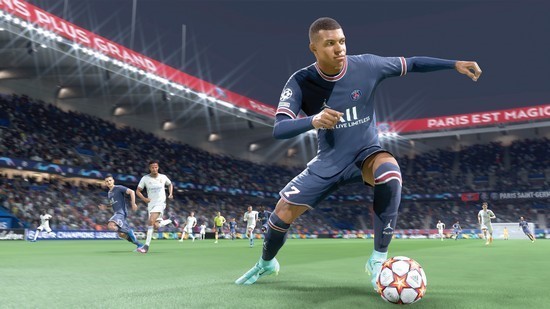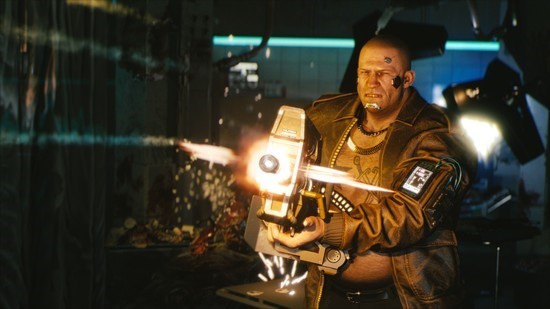A growing number of people have been complaining that the video games they play are
becoming stale and unentertaining. Many have described their struggle to find
fulfillment from games they have played religiously for years. Despite video
games being incredibly popular, and technology constantly developing, why have
people started to feel this way?
اضافة اعلان
The magic is gone
When games and consoles
first entered the mainstream market they were on every child’s holiday wish
list regardless of their quality or content. They always had a magical quality
to them.
Gaming YouTuber Jose Gonzales, known to his 120,000
subscribers as Stryxo, told Jordan News that playing his first video
game was “so different from anything I had ever done before”.
Gaming offered
Gonzales an escape from the stress of daily life and “provided the perfect
opportunity to escape into a fantastical world”.
For many, however, video games have started to lose
their charm. It is no longer about experiencing another world but being “the
best” at a game or accumulating the most resources with the game.
 FIFA 2022 sold 16.4 million copies less than FIFA 2018. (Photo: IGDB)
FIFA 2022 sold 16.4 million copies less than FIFA 2018. (Photo: IGDB)
Take
FIFA, for example. The beloved franchise,
produced by Electronic Arts, is based on real-world football and allows players
to lead their favorite teams to victory through online matchmaking or against a
computer. It is the best-selling sports video game franchise in the world, having
sold a total of 325 million copies as of 2021, according to the website Game
Rant.
FIFA’s most popular game mode is “Ultimate Team”,
which allows players to assemble their own fantasy team of real-world
footballers and pits those teams against other players’ online.
The game mode was groundbreaking when it was first
introduced in 2009 and quickly drew fans in. Since then, however, the magic has
faded and Ultimate Team has become a place where gamers sink countless hours
and money to build the perfect team. On top of that, a new version of FIFA is
released every year, and none of one’s previous achievements or progress get
transferred to the new game, compounding the game mode’s repetitive nature.
Fans’ growing frustration is reflected in the
downward trend of sales, with the latest iteration, FIFA 2022, selling 16.4
million copies less than FIFA 2018, according to data from Game Rant.
In the worst case an update might backfire, by changing fundamental game mechanics for example, failing to draw in disenchanted fans and alienating committed fans further.
While other sports video games have followed the
same trend, non-sports games suffer from a different problem: requiring gamers
to spend the most time grinding to obtain the most possible resources.
Outgrowing gaming
and the curse of updates
It is also possible that
people are just outgrowing their favorite games, or video games in general.
Many hobbies or activities follow the law of diminishing returns. Some games,
like World of Warcraft released in 2004, have enjoyed decades of popularity; it
is inevitable that fans’ interest would fluctuate over time.
To combat waning interest and keep their products
engaging, game developers and companies regularly update them with new content
and mechanics. By doing so, they are able often able to keep the game fresh for
current players and entice fans back.
Over time, even updates can be insufficient to keep
players interested. In the worst case an update might backfire, by changing
fundamental game mechanics for example, failing to draw in disenchanted fans
and alienating committed fans further.
Nowhere is that more evident than in the case of
H1Z1. Released in 2016, it was the first of its kind in the now infamous battle
royale genre. It preceded the likes of
Fortnite and PlayerUnknown’s
Battlegrounds, quickly gaining notoriety with its unique features and rewarding
gameplay.
 Players’ expectations are often triple-A titles’ biggest pitfall. (Photo: IGDB)
Players’ expectations are often triple-A titles’ biggest pitfall. (Photo: IGDB)
H1Z1 peaked in 2017 with an average player count of
just under 87,000. A month later the developers released the “combat update”,
which introduced a slew of new features.
There was only one problem: players hated it. Within
seven months, 91.7 percent of the player base had abandoned the game.
Triple-A failures
Apart from bad updates and
player behavior, another reason for players’ lack of enjoyment is the game
itself.
Triple-A games in particular have suffered from this problem lately.
Triple-A titles are those with budgets of $80–100 million or more, developed by
well-known publishers, according to the gaming studio Rocket Brush. Given such
large budgets and well-established developers, it is difficult to imagine a
triple-A game falling flat.
Players’ expectations are often triple-A titles’
biggest pitfall. The high production budgets and $60 price tag, gamers start
building their expectations — sometimes nearing hysteria — and this puts an
enormous amount of pressure on developers.
However, much of a triple-A title’s budget goes to
advertising, which only drives up people’s expectations further.
A textbook example of this phenomenon is
Cyberpunk 2077, which released on December 10, 2020. First teased in 2012, Cyberpunk
promised to be the most expansive and immersive open-world type game ever made.
Developer and publisher CD Projekt RED went to great lengths to double and
triple down on the hype.
When it finally
released fans were appalled at how unfinished and unenjoyable the game felt.
Within a month of the game’s release, Cyberpunk lost 80 percent of its player
base following a wave of refund requests. The developers faced backlash from
players and critics alike.
Luckily, not all games are triple-A titles. The
world of video games is vast, and hidden gems can be rewarding.
Unfortunately, not
everyone has the time or interest to explore all that gaming has to offer and
will stick to easily accessible, well-known triple-A games. If someone is
planning to spend $60 on a game, it is understandable that they want the “best”
game developers have to offer — with such large budgets, how could they be bad?
However, as seen with Cyberpunk and many more Triple-A failures, it can be bad,
and that can easily turn people away from gaming completely.
Read more Gaming
Jordan News




